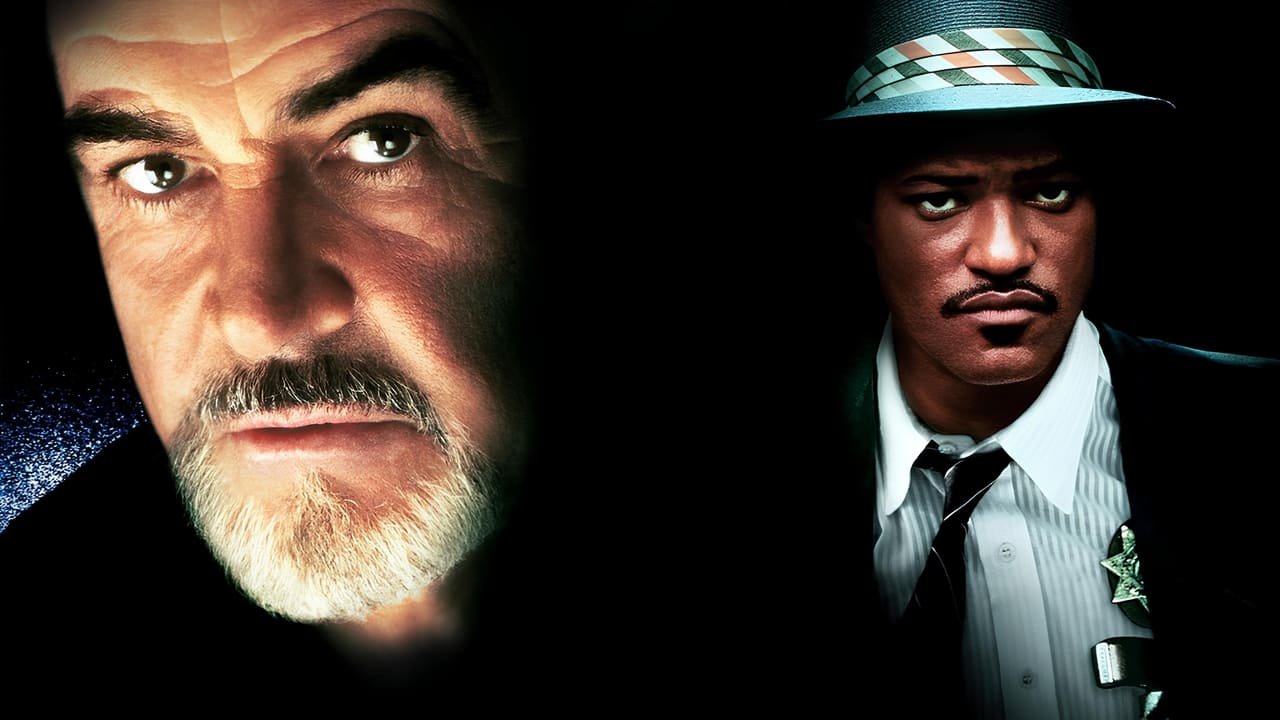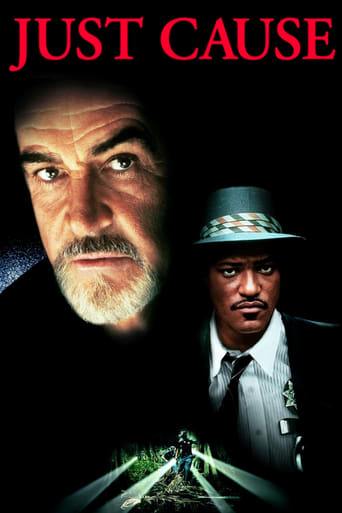

Watch something else. There are very few redeeming qualities to this film.
... View MoreA lot of perfectly good film show their cards early, establish a unique premise and let the audience explore a topic at a leisurely pace, without much in terms of surprise. this film is not one of those films.
... View MoreI didn’t really have many expectations going into the movie (good or bad), but I actually really enjoyed it. I really liked the characters and the banter between them.
... View MoreOne of the most extraordinary films you will see this year. Take that as you want.
... View MoreThe story revolves around a court case in which a black man, sentenced to death for raping and murdering a white little girl, claims to be innocent. Sean Connery plays the role of an idealistic defense lawyer and Lawrence Fishburne is the rude, ill-trained Southern police officer. Both are at opposite poles but both are guided by their sense of justice. Blair Underwood was absolutely brilliant in his character and the way he evolved was enjoyable. The plot has a time when everything suddenly changes, but it's not hard to predict. The plot has a good tension and holds our attention to the end. The actors are strong and they are giving their best. Ed Harris comes in a very interesting role, small but decisive for the course of the plot. The film does also somewhat philosophical considerations about justice and how it should be done.In summary, this is an excellent thriller where tension follows the entire movie and holds your attention to the end. It's not totally original and it's a little predictable at times but, despite that, it can provide the audience with very good actors capable of great performances. Enjoy.
... View MoreJust Cause (1995)Plot In A Paragraph: A Harvard professor (Connery) is lured back into the courtroom after 25 years to take the case of a young black man condemned to death for the horrific murder of a child.I don't get the hate aimed at this move, as I enjoy it. I remember being surprised how much I enjoyed it, as it was slated by critics upon releasel. It has a decent script, and has a few surprises. OK the ending isn't great, but that's it. Connery gives his usual solid performance, whilst Laurence Fishburn, Blair Underwood, Kate Capshaw (Mrs Steven Spielberg) Ned Beatty and Ed Harris are all solid, and we even get an early role from Scarlet Johansson, whilst I just love seeing Ruby Dee in anything. Just Cause grossed $36 million at the domestic box office to end 1995 as the 47th highest grossing movie of the year.
... View MoreToday no one would dare to have a film with a black character actually being guilty. We have a cop that seems to be corrupt, but actually is just aware of things we know nothing about....and in the end political correctness causes trouble. Without saying too much its a movie well worth seeing. The reason this film is being graded down is simply white guilt liberals who hate having the truth rubbed in their face. the truth that they are out of touch elitists that know absolutely nothing. It was very predictable in the first half...just the way libtards like it. The predictable "bad cop" good innocent black guy" dynamic. Until the truth hits us in the face...you can't judge the book by its cover, and some black people know all too well how to play victim when it suits them. Spoilers; People are asking the stupidest things to try and prove this movie doesn't make sense ..like why is Bobby Earl what he is? For the same reason that ed Harris character is what he is. Why is he seeking revenge? HE was castrated due to Laurie. You don't think this is enough reason? The reason that the professor was so easy to fool? THE SAME REASON LIBERALS ARE ALWAYS EASUY TO FOOL; Because they don't want truth to interrupt their narrative of black people as victims, and white people and cops as bad guys, even though in the real world it is usually very much the opposite.
... View MoreMy problem with Just Cause is this: I didn't get a clear understanding as to why Bobby Earl (Blair Underwood) becomes a cold-blooded child killer.Oh yes, Fishburne's character, Sheriff Brown, states that Bobby Earl is "bad," but Sheriff Brown never tells us why. He just has a "feeling." We do learn via dialogue, not action or backstory, that when Bobby Earl was a boy, he was taken from Newark and his drug-addicted mamma and sent to live with his Grandmother in Florida. Is the viewer supposed to surmise that Bobby Earl is bad because he lived in Newark with a drug-addicted mother? If we have to fill in the blanks, then the writer has done a poor job telling his story. Not all kids who live in Newark with drug-addicted parents grow up "bad." Then the other problem I had was when Bobby Earl reveals that he's been castrated. I thought men – like animals – become more docile without their nuts. Yet, after being castrated, Bobby Earl rapes (doesn't leave semen) and viciously fillets a young white girl.I'm no psych major, but Bobby Earl's actions just don't add up; maybe because the writer failed to give us an intelligent equation.
... View More